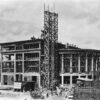

Javier Baños
Baños is the Editor of Gables Insider
The Coral Gables City Commission meeting on May 7, 2024, unfolded with a mix of routine business and significant undertakings. Despite the palpable tension among the commissioners, a pattern of quiet acquiescence has emerged, punctuated by occasional pettiness.
Mayor Lago, fresh from a bruising battle with a failed recall petition, has redirected his focus towards enhancing transparency and accountability within the city’s administration. To counter ongoing accusations of corruption against him, Lago proposed the establishment of a forensic audit of city funds and the creation of an internal office of the inspector general, at an estimated cost of $550,000. A recent spot audit confirmed that city actions were in compliance with existing ordinances, regulations, and commission mandates.
However, Commissioners Fernandez and Castro emphasized that residents’ concerns are rooted not in the misappropriation of funds but in the preferential treatment afforded to special interests and developers. The perceived corruption, they argue, lies in the liberalization of building codes rather than in fiscal mismanagement. City Manager Rojas and the commission collectively endorsed the idea of an external inspector general to investigate any allegations. Additionally, they proposed a performance audit to scrutinize internal controls and city procedures, aiming to highlight vulnerabilities to abuse.
In pursuit of broader transparency, Commissioner Menendez introduced, and the commission approved, an update to city ordinances aimed at creating an employee protection code. This initiative, aligned with Florida’s Whistle-Blower’s Act, seeks to streamline internal complaints by city staff. Whether this move represents genuine reform or mere posturing remains to be seen, but it could help restore public trust in our local government.
Yet, the familiar undercurrent of pettiness persisted. Mayor Lago and Vice Mayor Anderson seized on an opportunity to challenge their colleagues during the discussion of an item proposed by Commissioner Menendez. The item sought to reimburse the Actor’s Playhouse Production Inc., operators of the city’s Miracle Theater, for refurbishment an ADA-compliant ramp and railings at a cost of $41,900 to allow larger wheelchairs to make use of the theater. With the existing wheelchair lift ill-equipped for larger wheelchairs and obsolete, this improvement would be likely federally mandated and typically would pass without much debate.

However, Mayor Lago and Vice Mayor Anderson engaged in a 30-minute debate, questioning the cost, potential for grants, transparency about the proposed vendor, the operator’s repair responsibilities under the lease, and the prudence of an emergency fund request amidst new anti-corruption efforts. While their concerns were valid and pertinent, the debate had an air of gratuitous derision, seemingly aimed at exposing their colleagues’ perceived hypocrisy. Commissioner Menendez concluded the 3-2 vote by stressing his desire for wheelchair-bound children and elderly residents to enjoy the theater.

In a concerning development, the commission unanimously reversed the Historic Preservation Board’s decision to designate the property at 1221 Milan Avenue as historic. This was the second time the matter had come before the commission, with conflicting reports and tax records from 1922 and 1923 casting doubt on whether the home was part of a planned development by George Merrick or simply another house in the area. Commissioner Fernandez voiced concern that the decision inadvertently rewarded the applicant for years of unpermitted work that stripped the property of its distinctive features. He warned that this could incentivize property owners to neglect historic buildings or alter them beyond recognition. Fernandez pledged to introduce an ordinance to address this issue.
Despite the customary back-and-forth, the meeting proceeded with relative uneventfulness, accounting for the delay in this week’s report.
.


















1 Retrieve Value Given a set of specific cases, find attributes of those cases.
Mr Bathroom, this publication along with the three enemigos needs to be flushed, even if it harms the failing septic systems. How dare you speak of lack of transparency and pettiness on the part of Lago and Anderson. The other 3 have hijacked the commission. They have given themselves big raises, fire a City Manager in spite of citizen support and hire a new Manager without even a proper interview. Seriously, FLUSH!!!!
To paraphrase the great humorist Will Rogers:
The Gables is safe. Its Commission is not in Session.
I think most of us are weary of politicians who are more eager to use government to remake our towns, our states, our country in their image rather than serving us the mere citizens.
We all know to whom I am referring. Knock it off.
Does anyone else following these threads ever wonder why the term “developer” is used as an epithet? Last time I looked we were living in a predominantly capitalist society. A society that explicitly supports making profits from all varieties of economic activity. So are we to assume that seeking to profit from the buying, selling and the construction of real property is morally tainted in a way that seeking profit from, say, selling food or beverages is not?
If we are to be perfectly frank and honest isn’t this anti development bias a species of NIMBYism?
We have affordable housing crises in virtually every city in this country. The surest way to relieve the crisis is to construct more housing which in many cases entails increasing density. Those of us who enjoy living in low density luxury housing don’t want to see high density housing “spoil” our low density neighborhoods. Fair enough, understandable.
But if we are concerned about more than ourselves perhaps we should recognize that a) we are being selfish and b) solving the housing shortage and the maintaining the efficiency of municipal services may require higher density.
And just to be clear I am not now, nor have I ever been a real estate developer. And by the way wasn’t George Merrick a developer?
Thanks JB for noting a more serene atmosphere as the name tags “Elected Public Servants” is the prevailing reason thus unanimity tackling real fiscal issues and being publicly accesible is the most respectable way to deliver positive and endearing results so kudos all-around as we have a challenging horizon to deal with on many fronts👍🙏
The Owners of 1221 Milan Avenue are being rewarded for unethical and illegal behaviour. These illegal additions are not just small things, but facade altering changes that forever changed the home. They should be banned from living in a historic home and sent to the modernist sugar cube mines of Coconut Grove. The correct thing to do is require these ‘humans’ to remove all illegal additions, return to home to how they found it and start again..or leave.
“Commissioners Fernandez and Castro emphasized that residents’ concerns are rooted not in the misappropriation of funds but in the preferential treatment afforded to special interests and developers.” Sounds right!
A debate over the Approval of an “ADA-compliant ramp and railings at a cost of $41,900. With the existing wheelchair lift broken and obsolete, this improvement was federally mandated and typically would pass without much debate.” Yet money is wasted on art inconsistent with the Gables Architecture that costs $$$$ and now a Pickle Ball Court that will cost $$$$? Please!
Don’t waste money on an audit;create a culture of excellence and equality and stop the red carpet treatment, top down. The Commission and City Employees work for the residents NOT developers and other celebs.